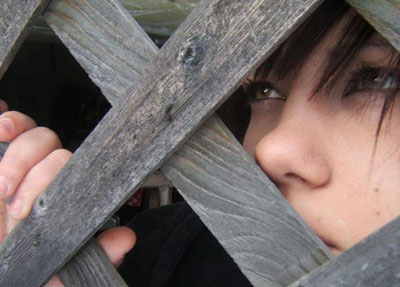All Nonfiction
- Bullying
- Books
- Academic
- Author Interviews
- Celebrity interviews
- College Articles
- College Essays
- Educator of the Year
- Heroes
- Interviews
- Memoir
- Personal Experience
- Sports
- Travel & Culture
All Opinions
- Bullying
- Current Events / Politics
- Discrimination
- Drugs / Alcohol / Smoking
- Entertainment / Celebrities
- Environment
- Love / Relationships
- Movies / Music / TV
- Pop Culture / Trends
- School / College
- Social Issues / Civics
- Spirituality / Religion
- Sports / Hobbies
All Hot Topics
- Bullying
- Community Service
- Environment
- Health
- Letters to the Editor
- Pride & Prejudice
- What Matters
- Back
Summer Guide
- Program Links
- Program Reviews
- Back
College Guide
- College Links
- College Reviews
- College Essays
- College Articles
- Back
What He Noticed
He sat under a willow at the Public Gardens, letting words pass over him and through him without ever really hearing them. He could see the lagoon and a swan boat slowly drifting, propelling kids and elderly tourists through the water. He had a pen and paper, the steel nib lightly resting, immobile, on the paper and ink bleeding out of it, forming a circle around the point of contact. He chose his words carefully before casually crossing them out. He did this sometimes, came down to the waterfront to write then found he had nothing to say. So he sat there, and thought, and listened. The tree’s fronds went all the way down to the ground and it was close enough to the water that some of them dangled in. There was a flock of children running through the park, chasing pigeons and feeding the swans.
There was a street musician and his trumpet on the path on the other side of the lake. Usually he couldn’t hear the musicians but it was uncharacteristically quiet today, or maybe the trumpeter was playing more loudly than usual. He was good too, playing a jazzed-up version of “Somewhere Over the Rainbow” to the crowd gathered around him. That was something he liked about cities, especially Boston – there was always music, whether it was played by street musicians or by the city itself: the noise of the cars, of people talking, of radios blaring in the Commons, the quiet heartbeat under the asphalt, the rumble of the T passing underfoot.
He heard someone speaking Spanish. It was a language he’d never learn but had always wanted to master. He liked something about the warmth of it, the way the words came out in streams of gold and orange in the same fashion fog comes out of one’s mouth when the air is cold.
“Pero no hay muchos personas borrachos aquí.”
“¿No? Tía, paga atención. Por favor.”
He loved the words and the way they rolled like quicksilver through his ears. He understood one word in that exchange: Tía. Aunt. Well, two: he understood the word “No” as well. He liked the way the first girl sounded innocent, inquisitive almost and naïve, like she wasn’t familiar with the area and the way the second one was laughingly condescending, native to the city. They sounded like good friends who hadn’t seen each other in a long time. He wrote the words down the way he’d heard them, but he was sure that he disremembered it and also that his spelling was atrocious. He vowed to look up the spelling when he got home and to learn what it meant.
But the soft, rolling vowels and even the flat softness of the consonants put words in his fingers. He started writing about the girls: both beautiful, one in a black, thin-strapped tank top which showed off the sharp wings of her shoulder blades and the other in a plain white maxi dress, softly flowing around her feet as she walked. They were both in matching sandals.
He noticed things like that.

Similar Articles
JOIN THE DISCUSSION
This article has 1 comment.

("Pero no hay muchos personas borrachos aquí" means "But there aren't many drunk people here," and "¿No? Tía, paga atencíon. Por favor" translates loosely into "No? Pay attention, girl. Please."